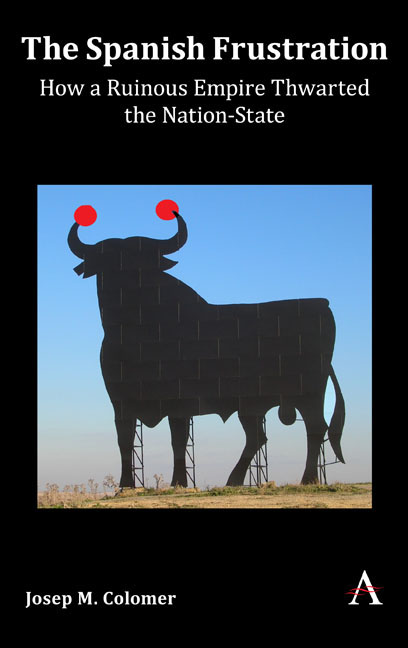Summary
The Breakdown of Public Finances
A Pretorian Army
A Ruling Church
From Picaresque to Corruption
Primitive Rebels
Derailment from the European Track
A Bubble State
When Spain had lost almost all of its empire at the end of the nineteenth century, many Spaniards realized that they did not have a true state or a true nation either— not even a unified national market. Spain had wasted its human and financial resources in the imperial adventure and had missed the opportunity to follow the paths of Britain, France and, more recently, even Germany or Italy, in building modern legal, political, economic and administrative structures of governance.
Some unacquainted people use the word “state” to categorize disparate political communities, including, for example, the Visigothic kingdoms, the Renaissance city-republics or the Aztec Empire. This is incorrect and confusing. In these and all the other political forms that existed everywhere in the world until, at least, the European late Middle Ages, there was no unity of power, which is the typical feature of the form “state.” There were empires covering fragmented territories without formal borders; princes subject to multiple feudal allegiances, special jurisdictions of estates, guilds, towns, bishoprics and monasteries; multiple currencies, weights and measures; and a variety of rules, local customs and usages.
The “state” is a specific form of political organization based, in contrast, on the monopoly of taxation, law and force by a single authority over the population of an encircled territory with clearly defined borders. As such, the state is usually branded with the attribute of “sovereignty.” Building states was a modern project mostly centered on Western Europe— and later on, tried to be replicated in some former European colonies. On this endeavor, Spain, which had been entangled in the imperial adventure, was very late and attained rather poor results.
Building a modern state may require a new pact between “the ruling few” and “the subject many,” as they said in England. At some moment when the complexity of public issues increases, it may be not enough for the traditional Crown to summon some aristocratic or intermediate body periodically to negotiate financial contributions or a new war. With the new pact, the subject may be convened to pay regular taxes, to serve in the military and to comply with the laws.
- Type
- Chapter
- Information
- The Spanish FrustrationHow a Ruinous Empire Thwarted the Nation-State, pp. 33 - 72Publisher: Anthem PressPrint publication year: 2019

